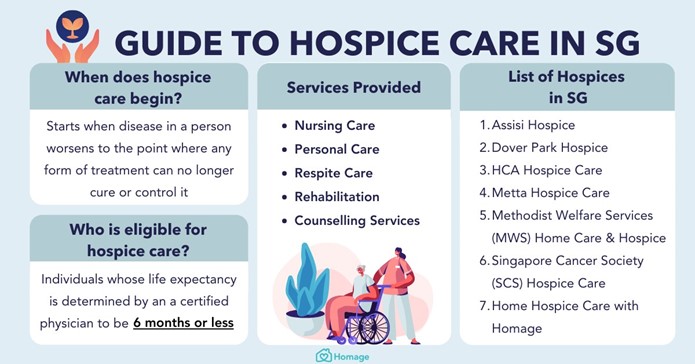A nurse is working for a hospice organization. The nurse should identify that which of the following criteria must be met for a client to qualify for hospice care?
The client's insurance provides coverage for palliative care.
The client has documentation stating he has less than 12 months to live.
The client has declined additional life-prolonging treatments.
The client requires inpatient care due to lack of a caregiver.
The Correct Answer is B
The client has documentation stating he has less than 12 months to live.
Hospice care is a type of palliative care that focuses on providing comfort and support to individuals who are in the end stages of a terminal illness. In order to qualify for hospice care, a client must have documentation from a physician stating that they have a life expectancy of six months or less if their illness follows its normal course.
The client's insurance coverage may vary, but it is not a determining factor in qualifying for hospice care.
The decision to decline life-prolonging treatments is a personal one that may align with a client's end-of-life goals, but it is not a requirement for hospice care.
Finally, the need for inpatient care due to a lack of caregiver support may be a factor in determining the most appropriate level of care, but it is not a requirement for hospice care.

Nursing Test Bank
Naxlex Comprehensive Predictor Exams
Related Questions
Correct Answer is ["B","C","E"]
Explanation
The client can receive hospice care in the hospital or at home, depending on their preferences and circumstances.
Option c is correct. The client can discontinue hospice care at any time if they choose to do so.
Choice e is correct. Hospice care involves a team approach to care, and the client will receive care from a variety of interprofessional team members, including a nurse, social worker, chaplain, and others.
Option a is incorrect. Hospice care is covered by Medicare, so the client will not need private insurance to receive hospice services.
Option d is incorrect. Hospice care can be initiated when a client has a prognosis of 6 months or less to live, but there is no requirement that the client has exactly 1 year left to live.
Correct Answer is D
Explanation
Teaching about inhaler use to a client who has asthma is an example of tertiary prevention. Tertiary prevention aims to reduce the impact of an already established disease or injury by maximizing function and preventing complications. In this case, teaching a client with asthma about inhaler use can help manage their symptoms and prevent exacerbations.
Choice a is an example of secondary prevention, which aims to detect and treat a disease early on to prevent it from progressing.
Choice b is an example of primary prevention, which aims to prevent a disease from occurring in the first place.
Choice c is also an example of primary prevention, as promoting helmet use is a way to prevent head injuries from occurring.
Whether you are a student looking to ace your exams or a practicing nurse seeking to enhance your expertise , our nursing education contents will empower you with the confidence and competence to make a difference in the lives of patients and become a respected leader in the healthcare field.
Visit Naxlex, invest in your future and unlock endless possibilities with our unparalleled nursing education contents today
Report Wrong Answer on the Current Question
Do you disagree with the answer? If yes, what is your expected answer? Explain.
Kindly be descriptive with the issue you are facing.
